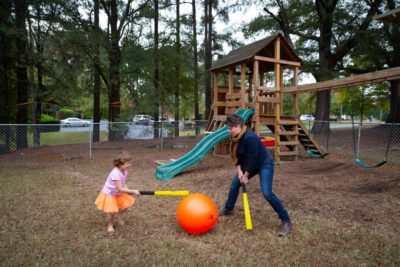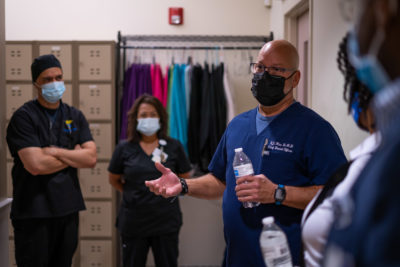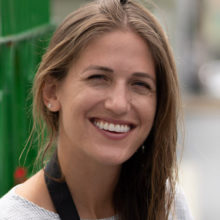The young mind is curious, inventive, and full of wonder. Watch this video about four students and their experiences with the North Carolina Science and Engineering Fair during the COVID-19 pandemic and learn more about their respective journeys below.
Science, by nature, allows youth to engage and explore their own curiosities. The science fair has long been a home for students to do just that. Through the science fair, students at all grade levels have the opportunity to inquire, connect with like-minded peers and professionals, and learn about the interconnectedness of fields of science. Tri-fold poster boards, sharing, experimentation, and judging represent a long-standing tradition in American classrooms since the science fair began in the 1920s.
For many students, it is a unique experience that shapes their future careers.
As it did for John Nguyen, a junior at Columbia University studying environmental biology. Nguyen is a graduate of Brevard High School in Brevard, North Carolina where he was part of the T.I.M.E. Science Research Program. He competed twice as a finalist in the Intel International Science and Engineering Fair (ISEF) in 2018 and 2019.
In his third year of high school John Nguyen and his research partners, Nicole Rideout and Matthew Bailey discovered a novel source of medicine in endophytes produced by rare spray cliff plants which could provide a remedy to antimicrobial resistance.
“I don’t want to be that person that’s so cliché, like ISEF, was life-changing. But it really was,” Nguyen said.
Today, Nguyen is continuing his scientific pursuits as a member of the Batterman Lab at the Cary Institute of Ecosystem Studies where he investigates the effects of nutrient limitations on tropical carbon sinks.
The 2021 North Carolina State Science and Engineering Fair went virtual amid the COVID-19 pandemic. Although by March 2021 students were familiar with presenting their work from their homes, many experienced obstacles in pursuing research.
Only 456 students, marking 60% fewer entries, put forward research to compete in the fully virtual fair on March 28, 2021.
Not only is inspiring curiosity an important part of the fair, but so is sharing what we learn with others, says North Carolina Science Fair Foundation Executive Director Theresa Gibson. Despite the virtual setting, students sharing their research with other young scientists was still a vital component of the format.
“Science fair is an approach to science as an exploration that is still happening. Students think and research and remain curious about how the world works. The foundation asks ‘how can we support kids as they become adults, in that curiosity and learner mindset?’ And more important to share that, because sharing our knowledge is one of the most important pieces for changing the world. And we know who’s going to change the world… our children are,” Gibson said.
‘A home away from home’
Despite the numerous academic challenges of 2021, the film Curious by Nature highlights four students who completed impactful research in the hopes of competing at the International Science and Engineering Fair (ISEF) and positively impacting their local community and environment.
I created Curious by Nature as a part of my graduate thesis research, ‘Capturing Authenticity,’ at the University of North Carolina at Chapel Hill. I partnered with the sustainable reusable water bottle company S’well to explore brand-sponsored documentary video storytelling that aligns with a brand’s values and social impact.
Through the lens of young researchers and their science fair projects, Curious by Nature follows 2021 North Carolina Science and Engineering Fair Competitors Zorabella, Uma, and sisters Kaitlyn and Lauren Zuravel who created impactful, environmental research projects on microplastics in North Carolina’s Little River, the impact of GenX on the protein functionality of oysters, and how to create bioplastic cutlery to reduce plastic pollution.
Dozens of tri-fold posters are organized behind cabinets in the Kaitlyn and Lauren’s home in Fayetteville, North Carolina, symbolizing the many years they have participated in the science fair.
“Science fair, I guess for both of us, it’s a home away from home. We’ve done it so many times. My old judges come up to me and they’re like ‘you’re back here again. I’m so glad you came again.’ I was like, ‘You think I was gonna leave?’” Kaitlyn said.
She attended ISEF in 2019 as a high school freshman and credits the science fair for giving her her life’s purpose so far.
Curious by Nature shows that the science fair isn’t just mentos and soda bottles or homemade rockets, but passionate students seeking to make a positive impact on the environment and solve issues of today.
In an era where science has been disrupted, innovation is valued less, and misinformation is rampant, 2021 is a new start for science to take its rightful place in society and inspire young generations to lead the movement fueled by their natural curiosity.
Recommended reading


